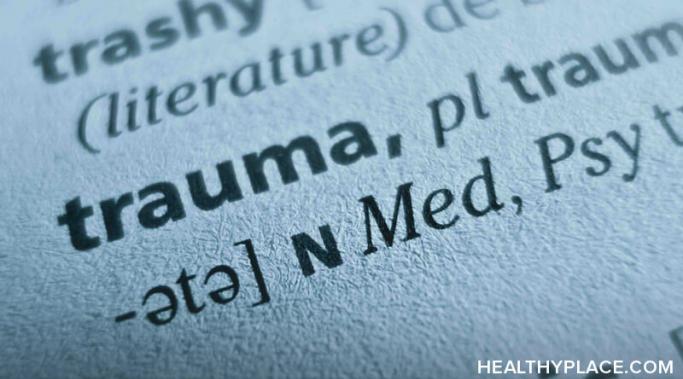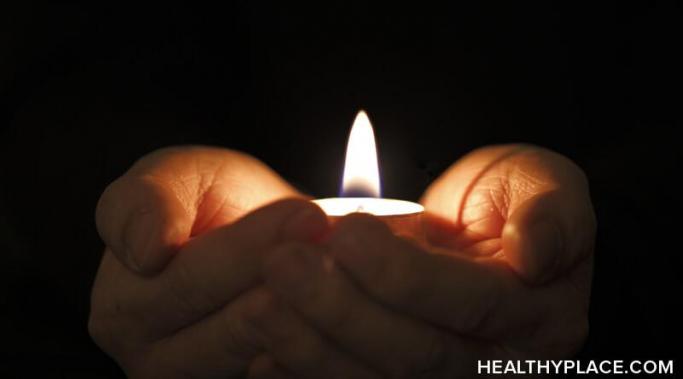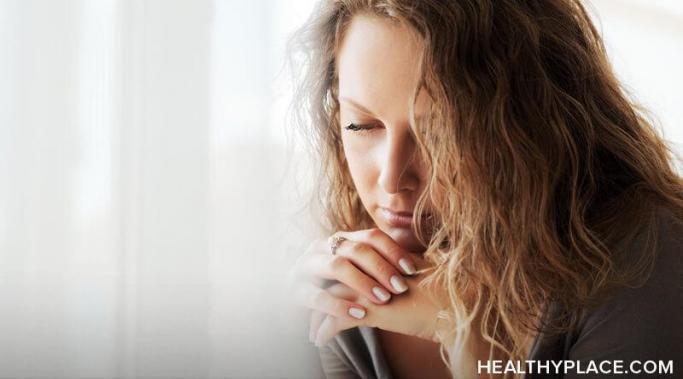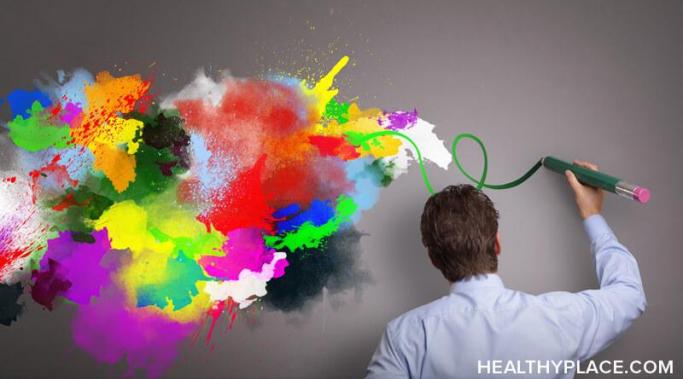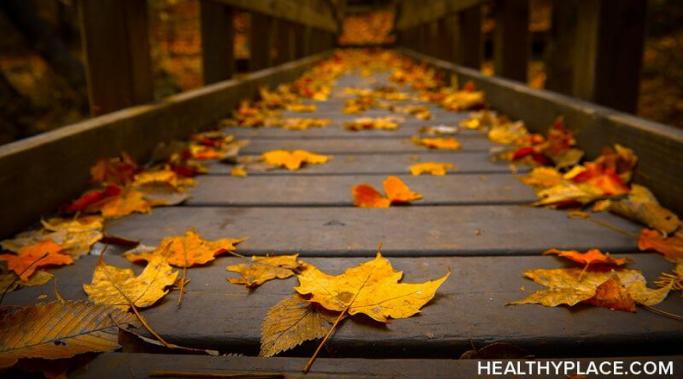There are some of us with depression who have experienced trauma during our lives. This trauma may have occurred prior to or after our diagnosis of depression. For those who have been through traumatic experiences, these events can have a profound effect on their depression. Armed with this knowledge, what can those of us with depression -- and those close to people with depression -- do with this information? (Note: This post contains a trigger warning.)
Causes of Depression
Having healthy coping skills and knowing how to practice them can play a major role in suicide prevention. When someone is struggling with depression and suicidal thoughts, the pain and confusion he/she feels is often compounded by misinformation, incorrect beliefs, and unhealthy coping skills. Yet, these are often the only things a person suffering from a mental health crisis has at his/her disposal. It's time to change this now by having educational conversations about mental health, suicide, and healthy coping skills. (Note: This post contains a trigger warning.)
For those with depression, isolation is often something we experience. Many times we don't have the energy or desire to go out and socialize; however, living in isolation is no true life at all. We don't have to allow our depression to keep us isolated. We just need some guidelines so we can tell the difference between isolation and alone time.
January depression can be difficult (as depression can be during other winter months), but creativity can help you fight depression and hopefully find some ways to enjoy winter with depression. After the holidays, it can be hard for some of us to get back into the mundane day-to-day routine, and depression may only exacerbate that feeling. Finding creative ways to counteract January depression is essential if we're going to find pleasure in our daily lives, especially during the bleakness of winter.
If you’re facing depression during the holidays, this is an especially trying time. You’re already dealing with so much, and then you need to add in the shopping, decorating, and time spent being social. This year, I’ve decided to plan ahead so that I can be at my best to enjoy this most wonderful time of the year. Keep reading to discover eight tips for facing depression during the holidays.
Negative thoughts and self-talk are the most frequent symptoms of depression I've experienced. Sometimes, it would take one seemingly small comment or event to propel me back down into the despair of an endless cycle of negative thoughts and self-talk from which it could take weeks or sometimes even months to fully recover. I got so tired of other people, situations, and depression having that kind of power over me. I asked my therapist for some depression coping skills and tools that would allow me to be better equipped to fight this battle. And they're working.
It's important to understand the chemical effects of alcohol on the depressed brain. I have the habit of turning to the bottle when I am having a rough day, as drowning out my mind with a bottle of wine often seems like the most tempting, albeit unhealthy, coping method. The societal glamorization of alcohol increases temptation, bombarding me with pubs and beautiful billboards which claim that the best way to relax is with several pitchers of beer. However, the chemical effects of alcohol are damaging to the depressed brain, and I’ve learned that a bad day plus a drunken night equates to an even worse morning.
Preparing for the winter when you have depression is an important thing to do, since so many of us suffer from the winter blues. We're in the fall right now, so this is a good time to start planning ahead for the cold days and long dark nights. It's time to prepare for winter depression.
Traveling with depression can be helpful and even healing, but it can also be stressful. Travel stress, or spending a lot of time in close proximity with other people and being out of normal routines, can sometimes provoke a worsening of depression symptoms. Here are some tips on travelling with depression.
